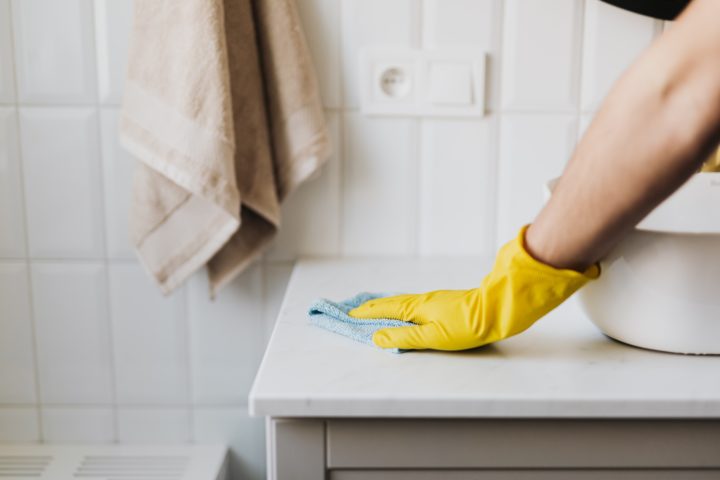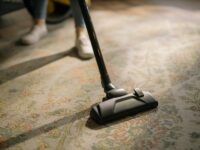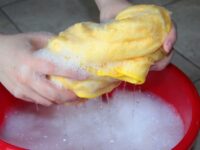The world is filled with pollution and contaminants. Your home should not be. This is not to say that you should be fearful of your environment. Instead, take a proactive approach to keep your personal sphere clean for you and your family. Keep reading for some helpful tips on how to keep your home healthy.
Mold Removal
Mold is best suited for certain types of cheese, not your home. There is a multitude of scenarios that can occur which may allow mold to grow in your home unchecked. These include a leaky pipe behind a closed wall, an outdoor spigot that was not properly drained before winter, cracks in the foundation or around windows that allow moisture into the home, and the list goes on. In other situations, mold can grow quickly, such as a major water leak from a hot water heater or washing machine, or a burst pipe – especially while you are away from home. Regardless of how the mold begins, once you have identified that this is the problem, perhaps with the aid of an at home mold testkit, you will need professional help in getting rid of it for good.
When the unfortunate occurs, call the mold remediation experts immediately. Finding a company with 24/7 emergency response is vital as mold can spread quickly. It is easier to contain and clean the mold than let it continue to spread while waiting for an appointment. Knowing that a representative is available throughout the day and night will do a lot to alleviate your stress so that you can take care of other matters.
Mold is especially hazardous to your health and those around you. People living in a home with mold may begin noticing common allergy symptoms like sneezing, coughing, itchy eyes, itchy skin, and difficulty breathing. These are not symptoms to be taken lightly. Even if you cannot see any mold, know that it might be actively growing behind your walls. The professionals will assess the situation, determine where the mold is, and what the next steps will be.
Clean Thoroughly
Cleaning your home is one of the most important things you can and should do to keep it free of allergens and dirt. There are many schools of thought regarding the best practices for how and when to clean.
The most important things to clean are immediate spills and dirt so they do not accumulate more dirt and dust or attract bugs. Next, routinely sanitize high-touch areas of the home such as the kitchen, bathrooms, doorknobs and handles, and light switches.
Next, create a home cleaning schedule for yourself. Dusting, vacuuming, and sweeping surfaces weekly will eliminate dust, dirt, and dander thus making your indoor air quality better. If you have others in your home, enlist their help to maintain the different zones.
Finally, create a master schedule for monthly, semi-annual, and annual cleaning so that you do not miss a thing. Remember to include forgotten surfaces such as walls and fan blades. If there is a surface, there is a likelihood that dust will accumulate there.
Here is a fun video with tips on reducing allergens at home.
Now that you know what to do in case you find mold in your home, keep your local mold remediation expert’s contact information accessible, just in case. Stay the course with your cleaning schedule, and you will reap the benefits of cleaner air and a cleaner home.

















Another thing you should remember to do in order to keep contaminants out of your home and improve indoor air quality is replacing air conditioner filters. We recommend using pleated filters with a MERV rating in the 7 to 12 because any air filter higher than 13 will restrict airflow, which could make your HVAC system work harder and consume more energy.